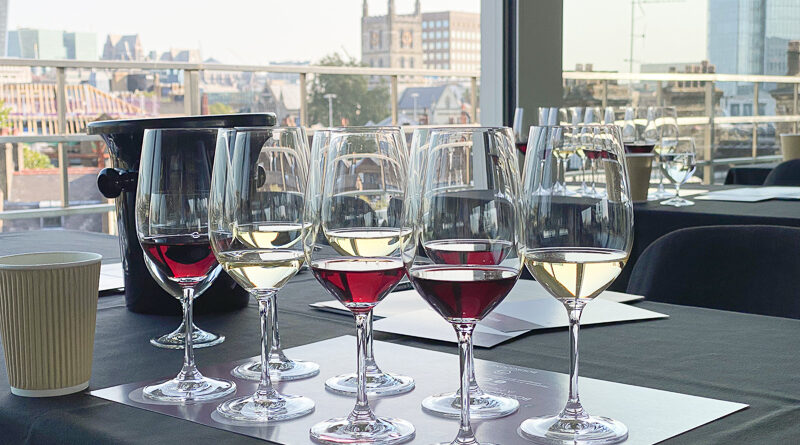Most people don’t like wine the first time they taste it
Do you remember the first time you tried wine? Did you like it?
I remember tasting wine as an older teenager and finding it quite unpleasant. I’m sure it wasn’t great wine: it would have been on holiday, and my dear parents used to drink enthusiastically but cheaply, probably as a way to switch off after a day spent corralling four children who bored easily.
Most of my early experiences with wine were not positive. In part, this could have been because cheap wine then wasn’t as good as it is now. But it’s also because wine has elements to its flavour that are difficult to get. Our sense of flavour (which includes taste, smell, touch and even vision) is quite adaptable. We learn to like many things, and this doesn’t just apply to wine – think also of olives, coffee and strong cheeses as examples. Wine is definitely something that grows on us, and often our tastes change with time.
Having said this, some wine styles are more accessible than others. As a complete novice, I found sweet wines such as Port much easier to get than dry wines. I struggled a bit with tannins and acidity. Early in my journey, I recall asking someone in a wine shop for advice. I said, I’d like a red wine with lots of fruit and really low tannins. She replied, humorously rather than patronizingly: wouldn’t you rather have fruit juice? (The point was well taken.) And steered me towards a Dornfelder, which was very soft and fruity. Soon, though, I grew a taste for big tannic reds, albeit with lots of sweet fruit.
This raises the question: do we need bridge wines to bring people into the wine category? Should we be celebrating wines that are made in a deliberately accessible style? I’m thinking red, whites and pinks with a sweet fruit profile, and even a bit of residual sugar. Or reds with very soft tannins, and a smooth mouth feel. Easy to drink, affordable wines. Even wine-based drinks with sweetness, fruit essences and lower alcohol.
The big question is whether the existence of this tier of cheap, easy to appreciate wines will act as bridges to the world of wine, or whether consumers will get stuck there, and these wines will cannibalize sales of wines in the tier above. I suspect that if people are lured in by bridge wines, then there’s a chance they will progress to wines that are more interesting, but the concern is that if consumers stick at this lower tier of wines, it could make the bottom end of the market even more unprofitable than it already is.
It’s important that you don’t misunderstand my point. I’m not saying that there is some moral imperative that people progress in their drinking journey towards wines that I approve of. That would be horridly elitist and snobbish, and it’s not the point I’m making.
Take the example of coffee. People drink coffee for different sorts of reasons. For most, it is a punctuation mark in the day: the psychology of coffee is as important as its sensory properties. For example, some need it to jump start their morning (first I need a coffee); for others it is a social occasion; for others just a chance to break up their work time into more manageable chunks. For a few, it’s all about the taste.
Many people start with instant coffee, and never progress. Others buy a cafetiere or a stove-top, or an aeropress, and buy ground coffee. Others grind their own. Still others might opt for the convenience of a pod system. And then there are the real crazy coffee geeks. I suspect that while many progress only a short way along the journey, the greater the number starting it, the more end up as coffee geeks.
With wine, I really don’t care whether you drink ‘entry level’ wines, or you are a wine geek. Your choice of wine is morally neutral (unless, of course, the grapes are farmed unethically). I’m on no crusade here to judge what people drink and try to coerce them to drink better. In some ways, having more people take an interest in wine pushes some rarer wines out of my price bracket. On the other hand, more people willing to spend a bit on wine creates an opportunity for new ambitious producers in less famous regions to make more interesting wine, because they have customers.
But it is good for the profitability of the wine sector, and also its ongoing sustainability, if more people develop a curiosity about wine, and begin to drink better wines. It’s the same with food. If people are more interested in what they consume, then they begin to question how the farming is done.
Instead of buying wine made by multinational drink corporations in factory wineries from grapes farmed unsustainably, they may well begin buying wine made on a more human scale with greater integrity in terms of the viticulture and winemaking. Communities based around vineyard areas become better places when growers and winemakers are paid a better price. Food and wine can give us pleasure, and if all people experienced is commoditized, processed food and wine, their lives could be diminished in some way.
I think it’s important that there exist some wines that are easier to appreciate than others – more accessible wines with unchallenging flavours, and a sense of tastiness that most people can get. We should never look down on these wines. But we should proceed with caution in welcoming cheap, sweetened alcopop-style wine-like drinks, because these aren’t terribly good for anyone, and could eat into the profitability of the wine sector.




